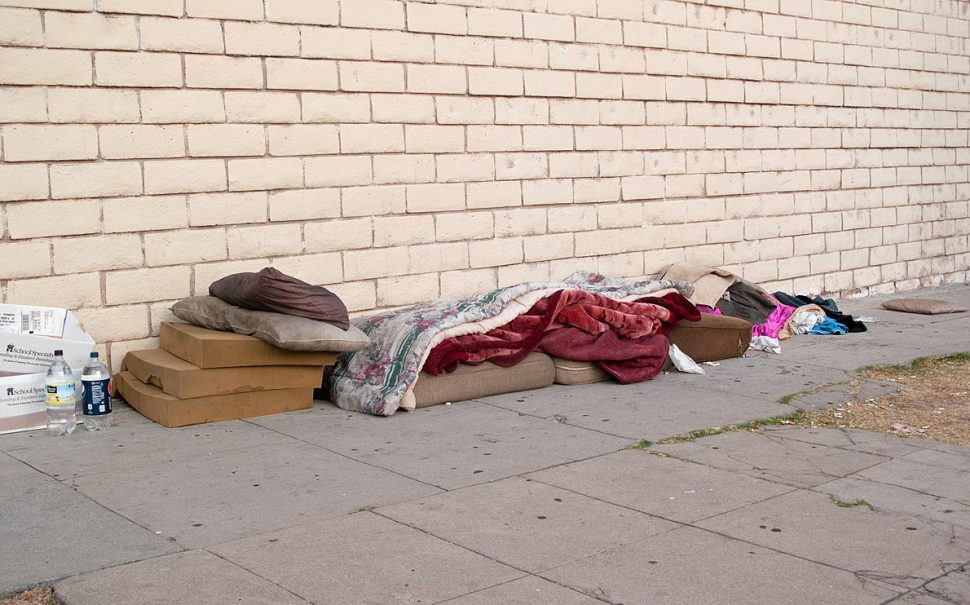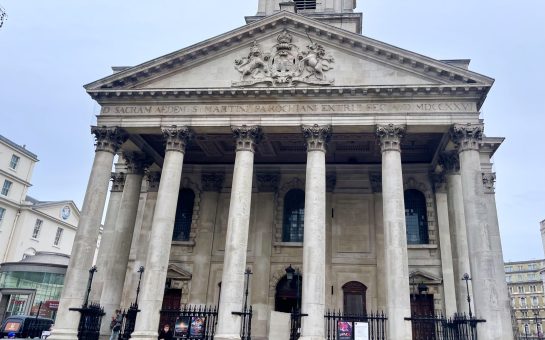Charities and a council have welcomed a government cash injection of £84m to tackle homelessness – though emphasise that challenges remain.
The sum – which was announced on 10 October – will be distributed to councils across England, with the areas facing the highest pressures receiving the most funding.
London is set to receive the largest cut of the money, at £36.5m.
Of the sum allocated to the city, £28.4m will be used to prevent rough sleeping, £7.1m will support families with children in temporary accommodation, and £960,000 will be spent on drug and alcohol treatment for people who are living on the streets or at risk of homelessness, according to the BBC.
This comes after London Councils revealed that London’s homelessness crisis is costing boroughs £5.5m a day as of 2024/25, up from £4.2m in 2023/24, with the majority of that money being spent on providing temporary accommodation for families experiencing homelessness.
While net expenditure on homelessness has increased by 16% across the rest of England since 2023/24, this figure has risen by 42% in London.
Data from the Combined Homelessness and Information Network (CHAIN) shows that, in the fiscal year 2024/25, an estimated 13,231 people were sleeping rough in Greater London, representing the highest figure since 2020/21.
In 2024/25, Brent was the borough with the sixth-highest number of homeless people, according to Trust for London.
Councillor Fleur Donnelly-Jackson, cabinet member for housing at Brent Council, told the Londoners the borough currently sees around 170 households presenting as homeless each week.
She explained that homelessness in Brent is most frequently a result of Section 21 evictions, while the second-most common cause is family breakdown.
A Section 21 eviction occurs when a landlord notifies a tenant that they must move out of the premises, either at the end of a fixed term tenancy or during a tenancy which has no fixed end date.
Brent is set to receive around £620,000 in funding.
Donnelly-Jackson said of the cash injection: “Anything that helps us to address and ameliorate homelessness is a plus from our point of view.”
However, the council is still facing significant financial pressure due to the costs incurred from procuring temporary accommodation
While Brent council has built its own 139 units of accommodation for those at risk of homelessness, it is still experiencing subsidy loss in the instances where it is procuring housing in the private rented sector.
Councils providing temporary accommodation to people facing homelessness are able to claim back subsidies for the accommodation they procure, but these subsidies are frozen at 90% of the Local Housing Allowance (LHA) rate from 2011.
The councillor stated Brent council is currently spending around £100,000 a day on temporary accommodation.
Donnelly-Jackson said: “What we really need is a change; we would really welcome the government raising the amount of subsidy that we can claim back on today’s rates or the most recent Local Housing Allowance rate instead of the 2011 one.
“There are some measures that could be rolled out, for example, on the Local Housing Allowance and the subsidy loss that might just help us to claw some of that money back.”
She also emphasised that any further grants to help Brent council construct more of its own accommodation or to provide key workers with affordable places to live would be welcome.
Youth homelessness charity Centrepoint has welcomed the funding, though said the root causes of homelessness still need to be addressed.
Lisa Doyle, the organisation’s head of policy and public affairs, said: “This is for people who have reached crisis situations, and we feel that there needs to be more done to prevent that happening in the first place.”
She explained that some local authorities are lacking the money to perform their duties under the Homelessness Reduction Act, which states the responsibilities local authorities have to prevent and relieve homelessness.
Doyle said: “That can then result in councils making difficult decisions around who they might support and who they don’t.”
The Homelessness Reduction Act states that everyone seeking support from a housing authority will require an initial interview, and, if there is reason to believe that they may be homeless or threatened with homelessness, an assessment must be carried out within 56 days to decide whether they are eligible for assistance.
However, Centrepoint data shows that a third of young people who present themselves as facing homelessness to local authorities are not being assessed.
Centrepoint data shows that the biggest cause of youth homelessness is family breakdown.

Doyle said: “The funding is really welcome, but there was nothing specifically earmarked in there for young people, and young people’s routes into homelessness are different to the general population, and their experiences of it are different, and their routes out are different.”
Friends of Essex & London Homeless Charity (FOELH) has also recognised the importance of the cash injection, though emphasised the lack of funding available for smaller organisations.
The charity’s co-founder and CEO, Steven Stuart, said: “Of course it’s going to help, but I do wonder what degree of help it will do, and how they’re going to use it in its best capacity.”
He highlighted the need for monetary support for grassroots, non-funded charities such as FOELH.
Stuart said: “Maybe when we’re talking about local governments slash local councils, maybe they should be looking at more grassroots areas and saying ‘Right, who’s at the front end?’ And we look at ourselves as a front-end charity. We’re on the street, we’re in front of those service users day in, day out.
“It’s like we’re a sticky plaster, because there’s only so much we can do.”
He called for greater collaboration between the government, councils, larger charities, and smaller charities in order to ensure that funding is best distributed to tackle homelessness.
Stuart said: “We would just like more voices, more opinions, more togetherness, so we can join the dots up a bit closer, whether that’s with local authorities, whether that’s with the government, whether that’s with the bigger charities.”
The organisers of the Faith in Action Merton Homelessness Project said that one of the biggest challenges they have seen is a lack of provisions for service users who have immigrated to England, find themselves without recourse to public funding, and ultimately end up at risk of homelessness.
Bernie McAlister, the project’s chair of trustees, said: “If they haven’t got their immigration status, then they have no rights, not only not to public housing, but to health[care] and many other things, which obviously is a significant problem.
“The reality is that it’s left to a charity group to try and address that. That’s the only recourse.”
The charity believes a dry house for Polish speakers who have limited English proficiency and are suffering from alcoholism would be particularly beneficial in Merton.
Grace O’Neill, the project’s homeless drop-in manager, said: “Unfortunately, because their English isn’t good enough, rehab won’t work because it’s all about talking therapies, going to groups, talking, speaking, listening, and they just don’t have the language skills.”
The project is hopeful that London councils will use the cash injection to fund longer-term solutions to issues such as insufficient temporary accommodation and homelessness itself.
O’Neill said: “They could buy back social housing, buy back houses that could be used as social housing that is appropriate and that would meet the person’s needs.
“At the moment I feel like they’re literally putting them in boxes. The temporary accommodation is going to do nothing to improve the person’s mental health or help them to get out of their situation unless they have a place that is suitable for them to live in.”
Featured image: Homeless person’s bed and belongings in the street. Credit: Downtowngal on Wikimedia Commons under Attribution-ShareAlike 3.0 Unported licence





